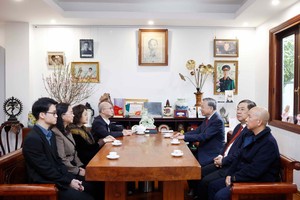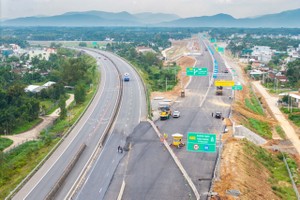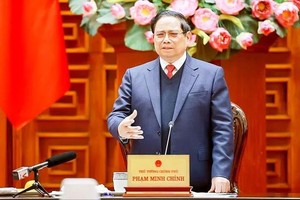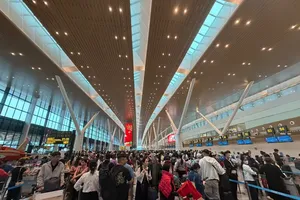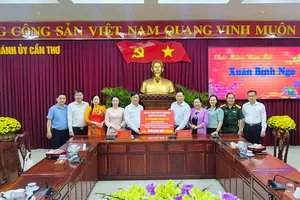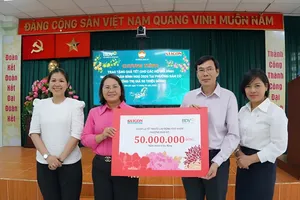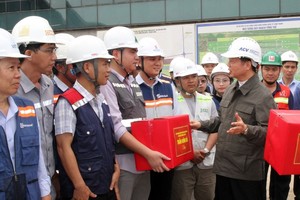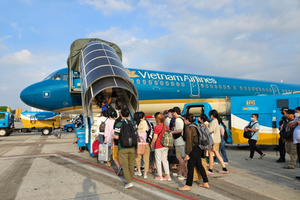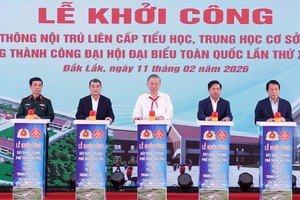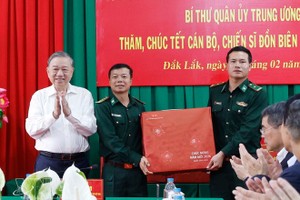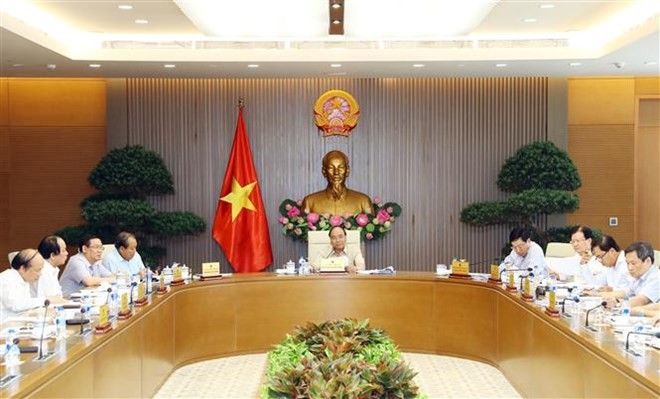
After listening to a report on matters related to the port, located in the northern city of Hai Phong, the PM clarified that the planning and investment of the port must be made coherent to improving the national competitiveness and ensuring that the Lach Huyen deep-sea port becomes a factor attracting investors to Hai Phong.
As the port is significant to the whole northern region, it is necessary to focus resources to expanding it in a more rapid manner, he said.
The PM assigned the Ministry of Transport to work with Hai Phong to review the project and submit a report to him at an early date.
Regarding the management model of the port, the PM asked the Ministry of Justice to coordinate with the Ministry of Transport and the People’s Committee of Hai Phong to deal with the issue in line with the law, but to make sure that there will be no additional agencies and personnel for the work.
Under the planning, Hai Phong ports will handle 109-114 million tonnes of goods each year by 2020, and about 178.5-210 million tonnes per year in 2030.
In 2020, the ports are expected to handle about 5.84-6.2 million TEU of containers each year, and 11.2-12.5 million TEU per year in 2030. The Lach Huyen seaport is planned to become a modern one, matching its role as an international gateway port and an international transit centre.
At the meeting, PM Phuc signed a resolution on the removal of difficulties in investment in construction, which requests ministries and sectors to issue new legal documents to ensure the coherence of the law, avoiding overlapping of legal documents.
Participants at the meeting also debated a number of other matters, including the verification and approval of compensation, support and resettlement plans for projects spanning at least two provinces; the Phu Yen section of the road connecting the central province of Phu Yen and Central Highlands Gia Lai province; and the investment of Republic of Korea’s Samsung company.
As the port is significant to the whole northern region, it is necessary to focus resources to expanding it in a more rapid manner, he said.
The PM assigned the Ministry of Transport to work with Hai Phong to review the project and submit a report to him at an early date.
Regarding the management model of the port, the PM asked the Ministry of Justice to coordinate with the Ministry of Transport and the People’s Committee of Hai Phong to deal with the issue in line with the law, but to make sure that there will be no additional agencies and personnel for the work.
Under the planning, Hai Phong ports will handle 109-114 million tonnes of goods each year by 2020, and about 178.5-210 million tonnes per year in 2030.
In 2020, the ports are expected to handle about 5.84-6.2 million TEU of containers each year, and 11.2-12.5 million TEU per year in 2030. The Lach Huyen seaport is planned to become a modern one, matching its role as an international gateway port and an international transit centre.
At the meeting, PM Phuc signed a resolution on the removal of difficulties in investment in construction, which requests ministries and sectors to issue new legal documents to ensure the coherence of the law, avoiding overlapping of legal documents.
Participants at the meeting also debated a number of other matters, including the verification and approval of compensation, support and resettlement plans for projects spanning at least two provinces; the Phu Yen section of the road connecting the central province of Phu Yen and Central Highlands Gia Lai province; and the investment of Republic of Korea’s Samsung company.



